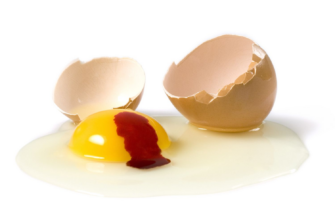Close


Photo:
Getty Images
Similar to flour and sugar, butter is one of those indispensable ingredients you just can’t do without. Whether to slather on toast, melt over a perfectly seared filet, or fold into a homemade batter, smart cooks keep a few sticks of butter on hand at all times. (The last thing you want to do mid-recipe is drop everything to make a mad dash to the grocery.) But how long does butter last? And how can you tell when and if it’s gone bad?
How Long Does Butter Last?
Butter keeps longer than other dairy products, thanks to its high concentration of fat (around 80%) and low moisture level (around 16%). Salted butter has an added layer of protection since salt acts as a natural preservative, thus slowing down spoilage. But butter eventually will go bad. How and when that happens depends on where you store it.
How long does butter last at room temperature? While some believe that butter should always be stored in the refrigerator, the truth is that, if stored properly, salted butter can keep at room temperature for a few days and even up to a week. Just be sure to cover it in a butter dish so light and air don’t get in. (Light and air are butter’s enemies because they will oxidize the fat, leading to rancidity.) It’s also best not to store next to a heat source or direct sunlight. Unsalted, whipped, and unpasteurized butter should be kept in the fridge.
How long does butter last in the refrigerator? Butter can be stored in the fridge for about three months (unsalted) to five months (salted). After that you might notice a change in quality and freshness since butter can absorb other flavors and odors in the fridge. To prevent that, store it in an airtight container or well-wrapped away from other foods with strong smells. While some refrigerator models have built-in butter storage in the door, it’s recommended you store butter in a colder part of your fridge for longer shelf life.
How long does butter last in the freezer? Butter can be frozen for five months (unsalted) to nine months (salted). Just like with the fridge, you’ll want to store it in the freezer in an airtight container such as a zip-top bag, and be sure to freeze before the use-by date. To thaw frozen butter, leave it in the fridge overnight to slowly defrost. Once thawed, it should be used within a month. It’s important to remember that even if stored properly, butter that’s been frozen for months won’t taste as fresh as butter you’ve just purchased.
Everyone Should Have a Butter Bell—Here's Why
How To Tell If Butter Has Gone Bad
While butter’s high fat content is great for shelf life, it's at risk of going rancid when exposed to heat, light, and air. And although spoiled butter probably won’t make you sick, it definitely won’t taste good. Here's how to tell when your butter has gone bad.
Appearance
While mold does grow on butter, you’re more likely to see subtle signs of spoilage like changes in color: If your butter has shifted from pale yellow to a darker yellow, brown, or even pink, throw it out.
Texture
Spoiled butter often develops a grainier texture and may be overly sticky or slimy.
Smell
Another clue that your butter has gone bad will be the smell. A sour, musty, or otherwise off-putting smell (some have described it as sweaty feet) means it’s past its prime.
Taste
Butter that has gone bad will have a sour, bitter, or metallic taste. Even a subtle change in flavor can negatively affect the outcome of a recipe.
What Happens When You Eat Spoiled Butter?
Eating rancid butter is unlikely to lead to serious illness, but it might cause an upset stomach or mild digestive issues, such as nausea. If you suspect butter is spoiled, it’s best to air on the side of caution and toss it.
The 3 Most Dangerous Expired Dairy Products in Your Refrigerator
Was this page helpful?
Thanks for your feedback!
Tell us why!
Other
Submit








